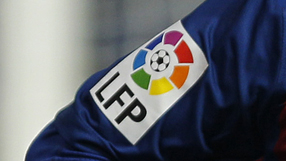
Talks between the players union (AFE), which last week called the strike for the first two rounds of matches in the top two divisions, and the professional football league (LFP), which represents the 42 clubs affected, failed to prevent the action.
European champions Barcelona and Real Madrid, the two richest clubs by revenue in the world, had been due to start their campaigns on Sunday.
Talks are now centred on preventing the second round of matches being halted which would create serious problems in the sporting calendar.
At the heart of the dispute is the union's demand that an emergency fund be set up to cover wages that have not been paid to players at clubs that have gone into financial administration.
The union says around 50 million euros is owed to 200 footballers from the end of last season, and the league's proposed 40 million euro fund is not enough to cover a growing problem.
"We have the best football in the world, but it is run very badly. The league has failed to control the situation with the clubs," Jose Maria Gay, an accounts professor at Barcelona University, told Reuters.
"Winning Euro 2008 and the World Cup earned Spain a great deal of goodwill, it helped open doors for us. But a strike because we can't pay our players will generate a lack of confidence in Spain as a whole.
The best features, fun and footballing quizzes, straight to your inbox every week.
"It would be a good time to use the situation to restructure Spanish football. It can't carry on as it is. They need to get out of the clouds and back down to earth."
DEBT-LADEN CLUBS
A recent study published by Gay, an expert in football finances, showed the 20 clubs in La Liga made a combined net loss of some 100 million euros in the year to the end of June 2010.
The total debt stood at 3.43 billion euros, more than double revenue of 1.61 billion.
Spain has been hit hard by the world economic crisis, is suffering from unemployment levels of more than 20 percent, and an increasing number of debt-laden clubs have sought protection from creditors by going into administration.
Six sides in the Spanish top flight have already taken this route, and in the second division more than half the clubs have as well.
Once a club is in administration, Spanish law can override competition rules that could lead to a club being relegated for failing to honour commitments such paying their players.
Analysts say the rules surrounding the "Ley Concursal" process have been used as an easy way for clubs to get out of their predicament, to preserve their league status, and to allow them to continue pursuing their irresponsible practices.
The players are seen to have genuine grievances, but the high profile support from individuals such as Spain internationals Iker Casillas of Real Madrid and Carles Puyol of Barcelona has drawn criticism as well.
"They have no shame," Getafe president Angel Torres told sports daily Marca.
"If they are showing so much solidarity, why don't they he
 Join The Club
Join The Club





